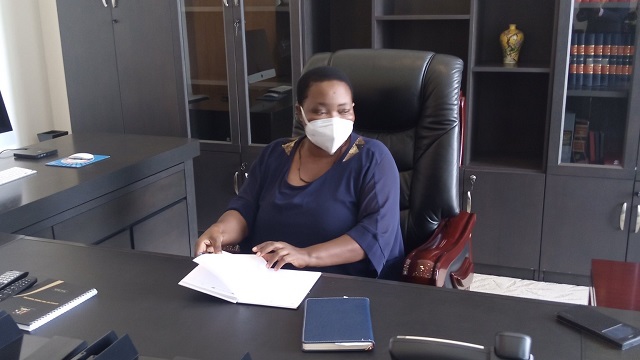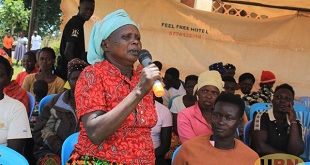
Kampala, Uganda | THE INDEPENDENT | The government has drawn up a resurgence plan worth 1.32 trillion Shillings in anticipation of another coronavirus wave. The plan is highlighted in a report by Prime Minister Robinah Nabbanja scheduled to be presented before Parliament next week.
It comes at a time when the country is battling a second wave of the Covid-19 pandemic, which has so far claimed 2,203 lives within Uganda out of the 88,674 confirmed cases, a majority of which occurred in a duration of 3-months of the resurgence that started in April 2021.
According to Ministry of Health records, the country now has 894 active Covid-19 cases admitted in various health facilities. But Nabbanja says that the plan is based on the lessons learnt in the response to the first wave, aimed at closing gaps identified in the interaction review and best available guidance from the World Health Organization on planning for a resurgence.
“In anticipation of a potential resurgence of COVID-19 in another wave and after a mid-term review, the Ministry of Health together with partners between the months of February and March developed a COVID-19 resurgence plan,” reads part of the report.
The resurgence plan indicates that government will need a total of 1.32 trillion Shillings budget and part of this will cater for coordination (12 billion), surveillance (59.3 billion), laboratory (84.98 billion), case management (93.8 billion), risk management (68.1 billion), community engagement (6.5 billion), SIR (70.3 billion), logistics (808 billion), continuity of essential services (114.1 billion) and vaccination (2.62 billion).
“The main cost drivers are; logistics (primarily for laboratory supplies, personal protective equipment for health workers and oxygen) and implementation of the care for the Covid-19 cases,” Nabbanja explains.
She adds that the budget for the immediate requirements for July to December 2021 amounts to 372.87 billion Shillings for different activities under the Ministry of Health.
The report indicates that Uganda will also have to undertake complex and non-conventional measures to increase its competitiveness in acquiring vaccines for the population in order to increase access to Covid-19 vaccines.
“To guide this endeavour in the context of global shortage in supply, a priority list of Covid-19 vaccines has been generated to guide efforts. The priority list provides leverage for the Ministry of Health to instruct the National Medical Stores to initiate procurement of vaccines on the list when the stocks become available,” further reads the report.
Nabbanja explains that the priority list of COVID-19 vaccines are guided by the cost of acquisition and deployment, the country’s capacity to store and distribute the vaccines of recommended temperatures, emergency use listing by World Health Organization -WHO and emergency use authorization by National Drug Authority- NDA.
She adds that with the considered parameters, the proposed priority list of COVID-19 vaccines for use in Uganda is AstraZeneca, Johnson and Johnson, Pfizer BioNTech, SINOVAC, S/NOPHARM, Sputnik V, Sputnik Lite and Moderna.
“The National Drug Authority has already issued Emergency Use Authorization for the following vaccines; AstraZeneca, Johnson and Johnson, and SINOVAC. The NDA is currently reviewing documentation for Pfizer BioNTech which we are expecting this month as a donation from the Covax facility in conjunction with the US government,” says Nabbanja.
She however says that to accelerate the acquisition of vaccines, direct procurement may have to be considered as a procurement method under the challenging circumstances of vaccines scarcity. Uganda has cumulatively received 1,139,260 doses of the AstraZeneca vaccine for its target population of 22 million people against Covid-19. The doses have enabled full vaccination of 185,170 persons and 687,744 individuals have received at least a single dose.
*****
URN
 The Independent Uganda: You get the Truth we Pay the Price
The Independent Uganda: You get the Truth we Pay the Price



